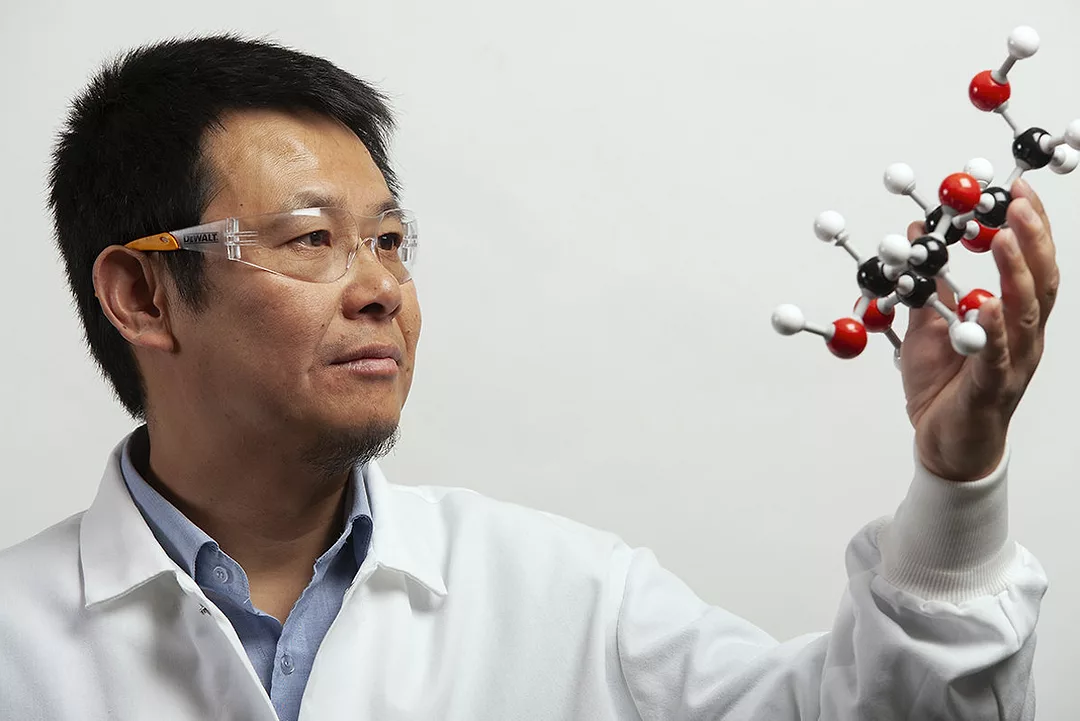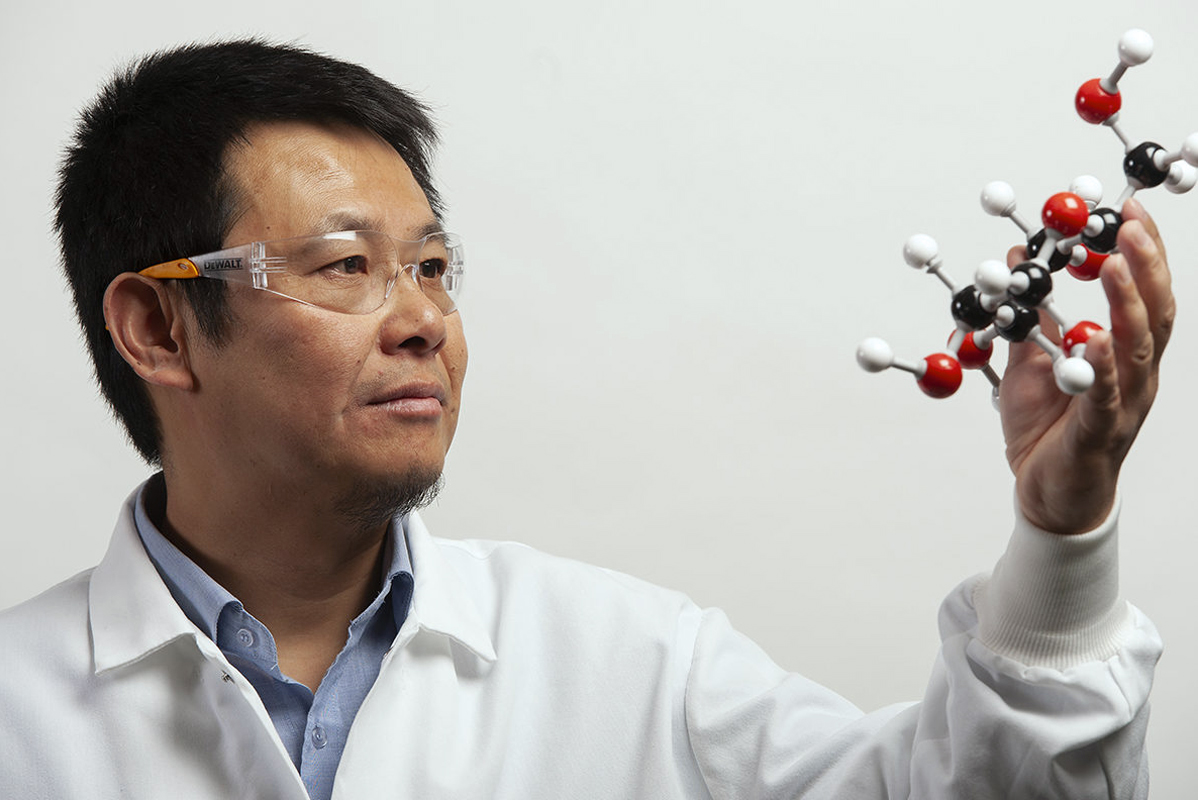
Home » WSU Tri-Cities professors land $1 million grants for biofuel research
WSU Tri-Cities professors land $1 million grants for biofuel research

July 16, 2018
Washington State University Tri-Cities recently landed two grants to advance biofuel research.
Associate professor Xiao Zhang received $500,000 to pursue converting lignin to biofuel.
Lignin is a common material that makes the cell walls of plants rigid.
The U.S. Department of Agriculture’s National Institute of Food and Agriculture awarded the grant to Zhang, whose laboratory is part of the university’s Voiland School of Chemical Engineering and Bioengineering.
The department also awarded a $500,000 grant to associate professor Hanwu Lei and his research team to create an environmentally-friendly catalyst to lower the cost and increase the efficiency in producing bio-based jet fuels.
Zhang’s project will be conducted in partnership with Xuejun Pan, a professor in the department of biological systems engineering from the University of Wisconsin-Madison.
Lignin is one of the largest renewable carbon sources on earth. It allows trees to stand, gives vegetables their firmness and makes up about 20 percent to 35 percent of the weight of wood. It also is one of the largest remnant products left over in the biofuels creation process.

Zhang and his team will investigate new conversion pathways to produce chemicals and biofuels without completely breaking down lignin into monomers — molecules that can be synthesized into polymers. In addition to its potential cost savings, the process could maximize carbon utilization in the biofuels creation process. It would also provide a profitable use for a waste product.
“We aim at converting lignin into a skeleton that has a similar carbon length in jet fuel range,” Zhang said in a news release. “The uniqueness is really targeting a more cost-effective process in taking advantage of the basic lignin structure of characteristics. Unlike many other processes, we don’t have to break down the lignin completely to its monomers.”
Lei’s grant is his second large major research grant from the USDA and National Institute of Food and Agriculture.
The first grant for $494,000 was awarded in August 2015 to develop a different type of biomass-derived catalysts. Once developed, these catalysts will be used to increase the energy output and performance of biofuels. These catalysts will produce aromatic hydrocarbons, which are high-energy organic compounds that largely are responsible for the octane number, or performance rating, of a fuel.
Under the new grant, Lei and his team will use enzymes to produce nanocrystalline cellulose. These “green catalysts” will be created from wastes such as corn stover, a remnant of corn harvest, or sawdust from Douglas fir trees.
With funding from the second grant, the new nano carbon catalyst will further convert the aromatic hydrocarbons researched with the first grant to cycloalkane naphtha, a major component in jet fuels.
“To reduce energy and hydrogen demands, and improve the catalytic performance of bio-jet fuel production, we proposed a new catalyst design that we could leverage from environmentally friendly, nature-based molecules,” Lei said in a news release. “These rod-like nanocrystals can be sourced from any agroforestry waste.”
Lei said their project is transformative for the biofuels industry in two ways: it’s a new and innovative idea that can be used to produce bio-jet fuel using less energy and hydrogen compared to current production processes; and by using cutting-edge processes, the team is applying new knowledge and approaches to solve challenges in state-of-the-art nanocrystalline cellulose extraction.
“The new process provides another novel pathway for conversion of biomass into advanced biofuels and jet fuels,” he said.
Local News Energy
KEYWORDS july 2018





